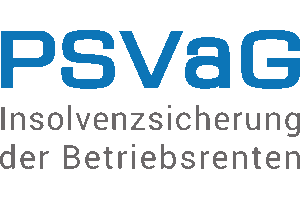Find Your Next Job Today
 delta pronatura GmbH
delta pronatura GmbHInternational Key Account Manager Discount (w/m/d)
LindenUnsere Welt: dynamisch, international und voller Möglichkeiten.Dein Team: vielfältig, leidenschaftlich und auf Erfolgskurs. Hinter den Erfolgsmarken Dr. Beckmann, Bullrich, Blistex und Bi-Oil stehen w
 PAUL HILDEBRANDT AG
PAUL HILDEBRANDT AGMitarbeiter für den Vertriebsinnendienst (m/w/d)
PfullingenDie Paul Hildebrandt AG ist einer der bundesweit führenden Fachanbieter für Industrieverpackungen. Für jede Verpackungsfrage gibt es eine gute Lösung, die unsere Kunden zufrieden stellt. Das ist der M
 VWR International GmbH, part of Avantor
VWR International GmbH, part of AvantorEuropean Tax Manager (m/w/d)
DarmstadtThis is an exciting opportunity to join Avantor as the European Tax Manager (m/w/d) in Germany and be at the forefront of our new function!Avantor®, a Fortune 500 company, is a leading global provider
 Air Charter Service GmbH
Air Charter Service GmbHFinance Controller
Frankfurt am MainAre you a recently qualified accountant looking for a new role within accounts who has what it takes to thrive in a growing global organisation? If the answer is yes, then read on… Air Charter Service
 Securiton GmbH Alarm- und Sicherheitssysteme
Securiton GmbH Alarm- und SicherheitssystemeProduktspezialist (m/w/d) elektroakustische Systeme – Achern
AchernDurch technische Sicherheitslösungen wie Brand- und Sonderbrandmeldesysteme bis hin zu Videosicherheitssystemen und Einbruchmeldeanlagen helfen wir dabei, Leben und Sachwerte unserer Kunden zu schütze
 Schleswig-Holstein Netz GmbH
Schleswig-Holstein Netz GmbHWerkstudent Stromnetzdienstleistung (m/w/d)*
RendsburgSchleswig-Holstein Netz GmbH | Rendsburg (mit anteiliger Home-Office Möglichkeit) | Befristet | Teilzeit Schleswig-Holstein Netz plant, baut und betreibt Strom- und Gasnetze im Norden. Mehr als 3 M
 Katholisches Klinikum Bochum gGmbH
Katholisches Klinikum Bochum gGmbHLeitender Oberarzt Orthopädie und Unfallchirurgie (m/w/d)
BochumDas Katholische Klinikum Bochum ist ein Krankenhausverbund der Maximalversorgung und Träger von zehn Einrichtungen. An den sechs Standorten St. Josef-Hospital, St. Elisabeth-Hospital, St. Maria-Hilf-K
 PENSIONS-SICHERUNGS-VEREIN VVaG (PSVaG)
PENSIONS-SICHERUNGS-VEREIN VVaG (PSVaG)Referent Kundenservice bAV (w/m/d)
CologneDie betriebliche Altersversorgung hat in Deutschland eine lange Tradition. 1974 wurden für uns die Spielregeln von unseren Gründungsmitgliedern und den Regierungsvertretern im Betriebsrentengesetz fes
 Deutsche Apotheker- und Ärztebank eG - apoBank
Deutsche Apotheker- und Ärztebank eG - apoBankPraxisberater für Heilberufe (m/w/d)
Frankfurt am MainBei der apoBank fördern wir Existenzen, realisieren zukunftsweisende Projekte und sind ein starker und zuverlässiger Partner für den deutschen Gesundheitsmarkt. Wir sind die größte Bank für alle akade
 ELANTAS GmbH
ELANTAS GmbHDivision Controller (m/f/d)
WeselWe are ALTANA: one group of companies – four divisions: BYK, ECKART, ELANTAS, and ACTEGA. A global leader in specialty chemicals and with myriad opportunities for you to develop and grow. Enrich your
 ZWP Ingenieur-AG
ZWP Ingenieur-AGProjektmanager Ingenieurbüro (m/w/d)
CologneSeit über 40 Jahren stehen wir bei der ZWP Ingenieur-AG für kosten- und ressourcenschonendes Bauen von morgen. Unsere über 400 Mitarbeiter:innen an 10 Standorten setzen mit maßgeschneiderten Lösungen
 Medizinischer Dienst Rheinland-Pfalz
Medizinischer Dienst Rheinland-PfalzFachärztinnen und Fachärzte der Fachrichtung Hals-Nasen-Ohren-Heilkunde (m/w/d)
KoblenzDer Medizinische Dienst Rheinland-Pfalz ist der unabhängige Partner der gesetzlichen Leistungsträger, Leistungsempfänger und Leistungserbringer mit einer besonderen gesellschaftlichen Verantwortung.
 DLR Deutsches Zentrum für Luft- und Raumfahrt e. V.
DLR Deutsches Zentrum für Luft- und Raumfahrt e. V.Elektro- oder Versorgungsingenieur/in (w/m/d)
WürselenElektro- oder Versorgungsingenieur/in (w/m/d) Kennziffer:755 Arbeitsort:Aachen Eintrittsdatum:01.05.2025 Karrierestufe:Absolventinnen & Absolventen Beschäftigungsgrad:Vollzeit, Teilzeit Dauer der Be
 delta pronatura GmbH
delta pronatura GmbHInternational Key Account Manager Discount (w/m/d)
LindenUnsere Welt: dynamisch, international und voller Möglichkeiten.Dein Team: vielfältig, leidenschaftlich und auf Erfolgskurs. Hinter den Erfolgsmarken Dr. Beckmann, Bullrich, Blistex und Bi-Oil stehen w
 Avacon Netz GmbH
Avacon Netz GmbHWerkstudent IT / Data Analytics zur Weiterentwicklung einer Power BI-Lösung für Gasnetze (m/w/d)
SalzgitterAvacon Netz GmbH | Befristet | Teilzeit Die Avacon Netz GmbH mit Sitz in Helmstedt ist Teil der Avacon-Unternehmensgruppe. Avacon Netz sorgt für die zuverlässige Bereitstellung der Strom- und Gasnetze
 Oberlandesgerichtsbezirk Hamm
Oberlandesgerichtsbezirk HammDuales Studium Diplom-Rechtspfleger (m/w/d)
HammBei der Justiz.NRW arbeiten rund 43.000 Menschen bei 204 Gerichten, 19 Staatsanwaltschaften und drei Generalstaatsanwaltschaften, 36 Justizvollzugseinrichtungen, fünf Jugendarrestanstalten und 19 Dien
 Sikla GmbH
Sikla GmbHProjektmanager (m/w/d) im Engineering der TGA und Pharmaindustrie
GermanySikla ist einer der führenden europäischen Anbieter von Befestigungssystemen für Rohrleitungs- und Anlagentechnik. Unsere über 50-jährige Erfahrung und unser Anspruch, auf dem Produkt- wie auf dem Die
 Bergische Universität Wuppertal
Bergische Universität WuppertalWissenschaftliche*r Mitarbeiter*in (Doktorand*in) am Lehrstuhl Werkstoffe für die Additive Fertigung
WuppertalDie Bergische Universität Wuppertal ist eine dynamische, vernetzte, forschungs-orientierte Campusuniversität. Gemeinsam stellen sich hier mehr als 26.000 Forschende, Lehrende, Studierende und Mitarbei
 B. Braun Melsungen AG
B. Braun Melsungen AGBusiness Data Steward (w/m/d)
MelsungenSie sind ein wichtiger Teil unserer Zukunft. Hoffentlich sind wir auch ein Teil Ihrer Zukunft! Bei B. Braun schützen und verbessern wir die Gesundheit der Menschen weltweit. Sie unterstützen diese Vis
 PAUL HILDEBRANDT AG
PAUL HILDEBRANDT AGMitarbeiter für den Vertriebsinnendienst (m/w/d)
PfullingenDie Paul Hildebrandt AG ist einer der bundesweit führenden Fachanbieter für Industrieverpackungen. Für jede Verpackungsfrage gibt es eine gute Lösung, die unsere Kunden zufrieden stellt. Das ist der M
 GOLDBECK Technologies GmbH
GOLDBECK Technologies GmbHInnovation Manager (m/w/d)
BielefeldGOLDBECK realisiert zukunftsweisende Immobilien in Europa. Wir verstehen Gebäude als Produkte und bieten alle Leistungen aus einer Hand: vom Design über den Bau bis zu Services im Betrieb. Aktuell bes
 Ferrero MSC GmbH & Co. KG
Ferrero MSC GmbH & Co. KGPraktikant Marketing (w/m/d)
Frankfurt am MainFerrero ist ein zukunftsorientiertes Familienunternehmen mit globaler Ausrichtung und weltbekannten Marken wie nutella®, tictac®, Ferrero Rocher® und kinder Überraschung®. An unseren unverwechselbaren
 DSK Deutsche Stadt- und Grundstücksentwicklungsgesellschaft mbH
DSK Deutsche Stadt- und Grundstücksentwicklungsgesellschaft mbHVertriebsmitarbeiter:in, Referent:in Vertrieb, Kundenberater:in, Mitarbeiter:in Vertrieb, Sales Representative (m, w, d)
OsnabrückAls Fin-Tech-Unternehmen und Tochter der DSK Deutsche Stadt- und Grundstücksentwicklungsgesellschaft mbH unterstützen wir bei der DSK Digital GmbH mit FördermittelNAVI, dem Expertensystem zur Fördermi
 RECA NORM GmbH
RECA NORM GmbHSales Manager im Außendienst Handwerk (m/w/d)
LeipzigWir sind RECA NORM, ein erfolgreiches und internationales Direktvertriebsunternehmen mit über 1.050 Mitarbeitern in Deutschland. Unser Spezialgebiet: Werkzeug, Befestigungstechnik sowie Prozesskosteno
 Otovo GmbH
Otovo GmbHField Sales Manager - Freelance Zwettl (f/m/x)
GermanyOtovo ist Europas führende Plattform für Solarsysteme. Unser Ziel ist es, den Kauf und die Installation von Solaranlagen für private Haushalte so einfach und erschwinglich wie möglich zu machen und so
 RECA NORM GmbH
RECA NORM GmbHSales Manager im Außendienst Handwerk (m/w/d)
WeselWir sind RECA NORM, ein erfolgreiches und internationales Direktvertriebsunternehmen mit über 1.050 Mitarbeitern in Deutschland. Unser Spezialgebiet: Werkzeug, Befestigungstechnik sowie Prozesskosteno
 Sonepar Deutschland GmbH
Sonepar Deutschland GmbHInnendienstmitarbeiter im Vertrieb (m/w/d) - Industrieabteilung, 80-100%
OsnabrückWillkommen bei Sonepar, wo wir die Zukunft des Elektrogroßhandels mit Herz und innovativer Technologie gestalten. Bei uns findest du nicht nur einen Job, sondern eine berufliche Heimat. Wir sind anget
 Saint-Gobain Weber GmbH
Saint-Gobain Weber GmbHFachberater (m/w/d) im Außendienst für das Segment Putz- und Fassadensysteme für die Region Luxemburg Nord, Belgien Süd (Wallonien)
GermanyWillkommen bei Saint-Gobain"MAKING THE WORLD A BETTER HOME" - Das ist unser Ziel! Mit unserem vielfältigen Markenportfolio gestalten wir als Innovationsführer Materialien und Lösungen für Bau und Ind
 cab Produkttechnik GmbH & Co. KG
cab Produkttechnik GmbH & Co. KGInternational Sales Manager Etikettendruck- und Etikettiersysteme (m/w/d) für Europa in Karlsruhe
KarlsruheAls Europas größter Hersteller von Etikettendruck-Systemen verfolgen wir in unserem Kerngeschäft der Bauteil-, Produkt- und Verpackungskennzeichnung eine führende Rolle in der Herstellung innovativ we
 Lampe & Schwartze KG
Lampe & Schwartze KGMitarbeiter Administrationsteam Sach- und Haftpflichtversicherungen (m/w/d)
BremenVersichern heißt Vertrauen – Seit über 160 Jahren vertrauen unsere Kunden sowie mehr als 330 Beschäftigte in uns, die Lampe & Schwartze Group, eine unabhängige Unternehmensgruppe der Versicherungswirt
 Salonkee S.A.
Salonkee S.A.Außendienstmitarbeiter (f/m/d) - Münster
MünsterÜber SalonkeeSalonkee ist eines der am schnellsten wachsenden Unternehmen im Bereich der Digitalisierung der Beauty- und Wellness-Branche in Europa. Unsere innovative All-in-One-Softwarelösung revolut
 Salonkee S.A.
Salonkee S.A.Außendienstmitarbeiter (f/m/d) - Köln/Düsseldorf
CologneÜber SalonkeeSalonkee ist eines der am schnellsten wachsenden Unternehmen im Bereich der Digitalisierung der Beauty- und Wellness-Branche in Europa. Unsere innovative All-in-One-Softwarelösung revolut
 duisport logistics & port services GmbH
duisport logistics & port services GmbHSales Manager (m/w/d)
DuisburgPerspektiven, die bewegen. Perspektiven, die bewegen. Alle logistischen Dienstleistungen aus einer Hand: Ob weltweite intermodale Transportkonzepte, Containerstauaktivitäten, Kontraktlogistik, Straßen
 VINCORION Advanced Systems GmbH
VINCORION Advanced Systems GmbHAssistenz der Leitung Business Development & Sales (m/w/d)
WedelAssistenz der Leitung Business Development & Sales (m/w/d)Arbeitsort: Wedel bei Hamburg, Schleswig-HolsteinVertragsart: unbefristeter Vertrag, Teilzeit 28 Std./WocheEinstiegslevel: BerufserfahreneHome
 ALD AutoLeasing D GmbH
ALD AutoLeasing D GmbHAccount Manager (w/m/d) Full-Service Leasing Automotive im Außendienst für unsere Vertriebskooperation Ford Fleet Management Vertriebsregion Mitte / West (Hessen, Rheinland-Pfalz und Saarland)
HesseMit 14.500 Mitarbeitern weltweit und mehr als 60 Jahren Erfahrung bietet ALD Automotive | LeasePlan Full-Service-Leasing, flexible Abonnementdienste, Fuhrparkmanagement und Multimobilitätslösungen für
 DSK Deutsche Stadt- und Grundstücksentwicklungsgesellschaft mbH
DSK Deutsche Stadt- und Grundstücksentwicklungsgesellschaft mbHVertriebsmitarbeiter:in, Referent:in Vertrieb, Kundenberater:in, Mitarbeiter:in Vertrieb, Sales Representative (m, w, d)
OsnabrückAls Fin-Tech-Unternehmen und Tochter der DSK Deutsche Stadt- und Grundstücksentwicklungsgesellschaft mbH unterstützen wir bei der DSK Digital GmbH mit FördermittelNAVI, dem Expertensystem zur Fördermi
 Überseeinsel GmbH
Überseeinsel GmbHJunior-Projektleiter Planung & Konstruktion (m/w/d)
BremenSeit ihrer Gründung im Jahr 2018 ist die Überseeinsel GmbH als Immobilienentwicklerin und Bestandshalterin tätig. Unsere Projekte umfassen die Stadt- und Quartiersentwicklung, die Revitalisierung und
 RECA NORM GmbH
RECA NORM GmbHSales Manager im Außendienst Handwerk (m/w/d)
LeipzigWir sind RECA NORM, ein erfolgreiches und internationales Direktvertriebsunternehmen mit über 1.050 Mitarbeitern in Deutschland. Unser Spezialgebiet: Werkzeug, Befestigungstechnik sowie Prozesskosteno
- Sparkasse Bergkamen-Bönen
Kreditanalyst (m/w/d)
BergkamenZur Verstärkung unseres Marktfolgebereiches Kredit suchen wir zum nächstmöglichen Zeitpunkt einen motivierten Mitarbeitenden (m/w/d) für den Bereich der Kreditanalyse und -sachbearbeitung. Optimalerwe
 WHU - Otto Beisheim School of Management
WHU - Otto Beisheim School of ManagementDirector Controlling & Finance (w/m/d)
VallendarDie WHU – Otto Beisheim School of Management ist die renommierteste private Hochschule in Deutschland und genießt auch international hohes Ansehen. Unsere Standorte in Vallendar und Düsseldorf bieten
 Otovo GmbH
Otovo GmbHField Sales Manager - Freelance Zwettl (f/m/x)
GermanyOtovo ist Europas führende Plattform für Solarsysteme. Unser Ziel ist es, den Kauf und die Installation von Solaranlagen für private Haushalte so einfach und erschwinglich wie möglich zu machen und so
 Sparkasse Neuss
Sparkasse NeussBeratung im medialen Kundencenter Outbound (m/w/d)
NeussBeratung im medialen Kundencenter Outbound (m/w/d) – unbefristet in Voll- und Teilzeit – Wir sind einzigartig – weil wir mehr sind als eine Bank: Wir sind die Sparkasse Neuss. Als verantwortun
 Bosch Gruppe
Bosch GruppePraktikum im Bereich Standortkommunikation/interne und externe Kommunikation
EisenachMöchten Sie Ihre Ideen in nutzbringende und sinnvolle Technologien verwandeln? Ob im Bereich Mobility Solutions, Consumer Goods, Industrial Technology oder Energy and Building Technology - mit uns ver
 RECA NORM GmbH
RECA NORM GmbHSales Manager im Außendienst Handwerk (m/w/d)
WeselWir sind RECA NORM, ein erfolgreiches und internationales Direktvertriebsunternehmen mit über 1.050 Mitarbeitern in Deutschland. Unser Spezialgebiet: Werkzeug, Befestigungstechnik sowie Prozesskosteno
 Fraunhofer-Institut für Kommunikation, Informationsver. und Ergonomie FKIE
Fraunhofer-Institut für Kommunikation, Informationsver. und Ergonomie FKIEAbteilungsassistenz Kommunikationssysteme am Standort Bonn (in Teilzeit)
BonnDie Fraunhofer-Gesellschaft betreibt in Deutschland derzeit 76 Institute und Forschungseinrichtungen und ist eine der führenden Organisationen für anwendungsorientierte Forschung. Rund 32 000 Mitarbei
 EPLAN GmbH & Co. KG
EPLAN GmbH & Co. KGElektrokonstrukteur (m/w/d) als technischer Referent / Trainer
Monheim am RheinWir sind Eplan. Engineeringprofi und Softwarespezialist, Industrieautomatisierer und digitaler Transformierer. Wir sind Teil der Friedhelm Loh Group. Familienunternehmen und Global Player, Innovations
 CHEP Deutschland GmbH
CHEP Deutschland GmbHShift Team Leader - Plant Operations in Zevenaar (m/w/d)
ZevenaarWHO WE ARE WE at CHEP?CHEP, a Brambles company, is a global leader in supply chain logistics, specializing in the pooling of pallets, crates, and containers. We support industries such as consumer goo
 Mercedes-Benz Tech Innovation
Mercedes-Benz Tech InnovationPraktikant UI/UX Design (m/w/d)
StuttgartLife is always about becoming… Im Leben geht es darum, sich auf eine Reise zu begeben, um die beste Version unseres zukünftigen Selbst zu werden. Während wir Neues entdecken, stellen wir uns Herausfor
 Dienstleistungs-Center Halle GmbH (DLC Halle)
Dienstleistungs-Center Halle GmbH (DLC Halle)Studentische Mitarbeiter (m/w/d) im ADAC Notruf / Pannenhilfe - Leipzig
LeipzigAls größte Hilfezentrale des ADAC gehen bei der DLC Halle GmbH rund um die Uhr Notrufe von ADAC-Mitgliedern und Kunden aus dem In- und Ausland ein. Rund 800 Mitarbeiterinnen und Mitarbeiter organisier
 TROX SE
TROX SEIndirekter Einkäufer (m/w/d) IT-Beschaffung
Neukirchen-VluynWir sorgen für gutes Klima – mit zukunftsorientierten Komponenten und Systemen für die moderne Lüftungs- und Klimatechnik. Weltweit unterstützen uns rund 4.950 Mitarbeitende mit einem Gesamtumsatz von